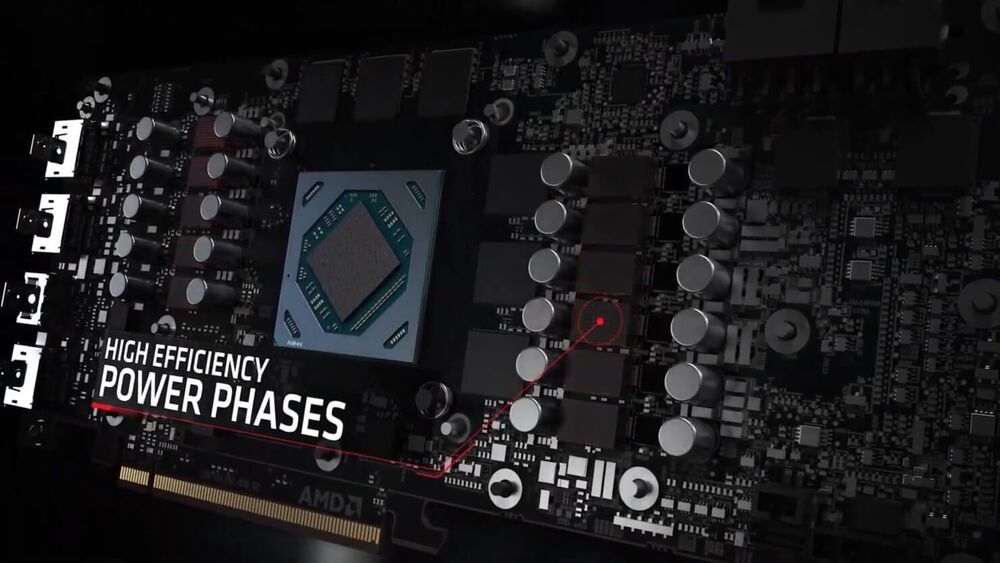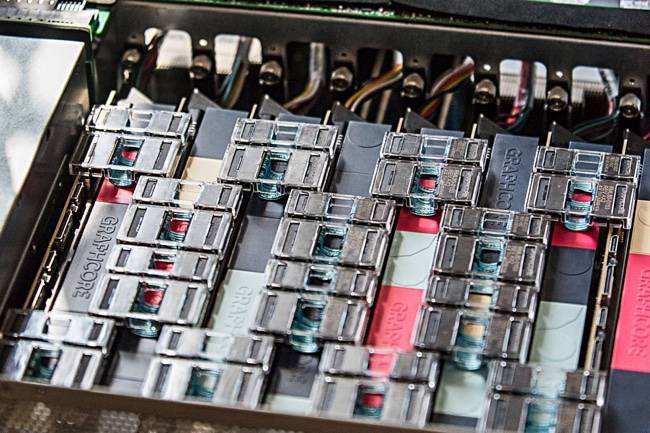During operations in Gaza in mid-May, the Israel Defense Forces (IDF) used a swarm of small drones to locate, identify and attack Hamas militants. This is thought to be the first time a drone swarm has been used in combat.




Astronomy is all about data. The universe is getting bigger and so too is the amount of information we have about it. But some of the biggest challenges of the next generation of astronomy lie in just how we’re going to study all the data we’re collecting.
To take on these challenges, astronomers are turning to machine learning and artificial intelligence (AI) to build new tools to rapidly search for the next big breakthroughs. Here are four ways AI is helping astronomers.

Physics-informed machine learning might help verify microchips.
Physicists love recreating the world in software. A simulation lets you explore many versions of reality to find patterns or to test possibilities. But if you want one that’s realistic down to individual atoms and electrons, you run out of computing juice pretty quickly.
Machine-learning models can approximate detailed simulations, but often require lots of expensive training data. A new method shows that physicists can lend their expertise to machine-learning algorithms, helping them train on a few small simulations consisting of a few atoms, then predict the behavior of system with hundreds of atoms. In the future, similar techniques might even characterize microchips with billions of atoms, predicting failures before they occur.
The researchers started with simulated units of 16 silicon and germanium atoms, two elements often used to make microchips. They employed high-performance computers to calculate the quantum-mechanical interactions between the atoms’ electrons. Given a certain arrangement of atoms, the simulation generated unit-level characteristics such as its energy bands, the energy levels available to its electrons. But “you realize that there is a big gap between the toy models that we can study using a first-principles approach and realistic structures,” says Sanghamitra Neogi, a physicist at the University of Colorado, Boulder, and the paper’s senior author. Could she and her co-author, Artem Pimachev, bridge the gap using machine learning?

In a new patent from AMD, researchers have highlighted techniques for performing machine learning operations using one or more dedicated ML accelerator chiplets. The resulting device is called an Accelerated Processing Device or APD which can be used for both gaming and data center GPUs via different implementations. The method involves configuring a part of the chiplet memory as a cache while the other as directly accessible memory.
The sub-portion of the former is then used by the machine learning accelerators on the same chiplet to perform machine learning operations. The patent is very open-ended with respect to its uses, indicating possible use in CPUs, GPUs, or other caching devices, but the primary target appears to be GPUs with several thousand SIMD units.
One implementation of the APD is configured to accept commands via both graphics and compute pipelines from the command processor, showing the ability to both render graphics as well as compute-intensive workloads required by convolution networks. The APD contains several SIMDs capable of performing vector operations alongside limited scalar and SP tasks similar to existing AMD GPUs.
https://youtube.com/watch?v=dQfV2_sROBw&feature=share
On June 25, 2021 NASA published detail description of future missions for Ingenuity Mars Helicopter considering 2nd software update because of HD imaging issue. Ingenuity’s team determined that capturing color images may have been inducing the imaging pipeline glitch, which resulted in the instability (Flight 6 anomaly). So Mars Helicopter needs 2nd software update to make thing going well within upcoming 9th flight. Ingenuity’s first bug was solved by software update (watchdog timer issue). Another software update for Mars Helicopter is intended to return ability to make 13 Megapixels photos on mars without flight anomalies for Ingenuity. Last week Mars Helicopter completed 8th flight on flying to 160 meters South and Perseverance goes to new location Séítah as well. Black and white images are from Ingenuity’s onboard camera directly. Mars Helicopter flew for 77.4 seconds. Maximal horizontal speed was 4 meters per second. Altitude was 10 meters. Ingenuity made amazing work to live on Mars autonomously.
Credit: nasa.gov, NASA/JPL-Caltech, NASA/JPL-Caltech/ASU
Link to Ingenuity’s 9th flight preparation with 2nd software update: https://mars.nasa.gov/technology/helicopter/status/308/fligh…ext-steps/
#mars #ingenuity #helicopter


Researchers and entrepreneurs are starting to ponder how AI could create versions of people after their deaths—not only as static replicas but as evolving digital entities that may steer companies or influence world events.
Experts are exploring ways artificial intelligence might confer a kind of digital immortality, preserving the personalities of the departed in virtual form and then allowing them to evolve.
This video was made possible by NordPass. Sign up with this link and get 70% off your premium subscription + 1 monrth for free! https://nordpass.com/futurology.
Visit Our Parent Company EarthOne For Sustainable Living Made Simple ➤
https://earthone.io/
The story of humanity is progress, from the origins of humanity with slow disjointed progress to the agricultural revolution with linear progress and furthermore to the industrial revolution with exponential almost unfathomable progress.
This accelerating rate of change of progress is due to the compounding effect of technology, in which it enables countless more from 3D printing, autonomous vehicles, blockchain, batteries, remote surgeries, virtual and augmented reality, robotics – the list can go on and on. These devices in turn will lead to mass changes in society from energy generation, monetary systems, space colonization, automation and much more!
This trajectory of progress is now leading us into a time period that is, “characterized by a fusion of technologies that is blurring the lines between the physical, digital and biological spheres”, called by many the technological revolution or the 4th industrial revolution — in which everything will change, from the underlying structure and fundamental institutions of society to how we live our day-to-day lives.
00:00 Intro.

This is only the Beginning.
Quantum physicist Mario Krenn remembers sitting in a café in Vienna in early 2016, poring over computer printouts, trying to make sense of what MELVIN had found. MELVIN was a machine-learning algorithm Krenn had built, a kind of artificial intelligence. Its job was to mix and match the building blocks of standard quantum experiments and find solutions to new problems. And it did find many interesting ones. But there was one that made no sense.
“The first thing I thought was, ‘My program has a bug, because the solution cannot exist,’” Krenn says. MELVIN had seemingly solved the problem of creating highly complex entangled states involving multiple photons (entangled states being those that once made Albert Einstein invoke the specter of “spooky action at a distance”). Krenn and his colleagues had not explicitly provided MELVIN the rules needed to generate such complex states, yet it had found a way. Eventually, he realized that the algorithm had rediscovered a type of experimental arrangement that had been devised in the early 1990s. But those experiments had been much simpler. MELVIN had cracked a far more complex puzzle.
“When we understood what was going on, we were immediately able to generalize [the solution],” says Krenn, who is now at the University of Toronto. Since then, other teams have started performing the experiments identified by MELVIN, allowing them to test the conceptual underpinnings of quantum mechanics in new ways. Meanwhile Krenn, Anton Zeilinger of the University of Vienna and their colleagues have refined their machine-learning algorithms. Their latest effort, an AI called THESEUS, has upped the ante: it is orders of magnitude faster than MELVIN, and humans can readily parse its output. While it would take Krenn and his colleagues days or even weeks to understand MELVIN’s meanderings, they can almost immediately figure out what THESEUS is saying.